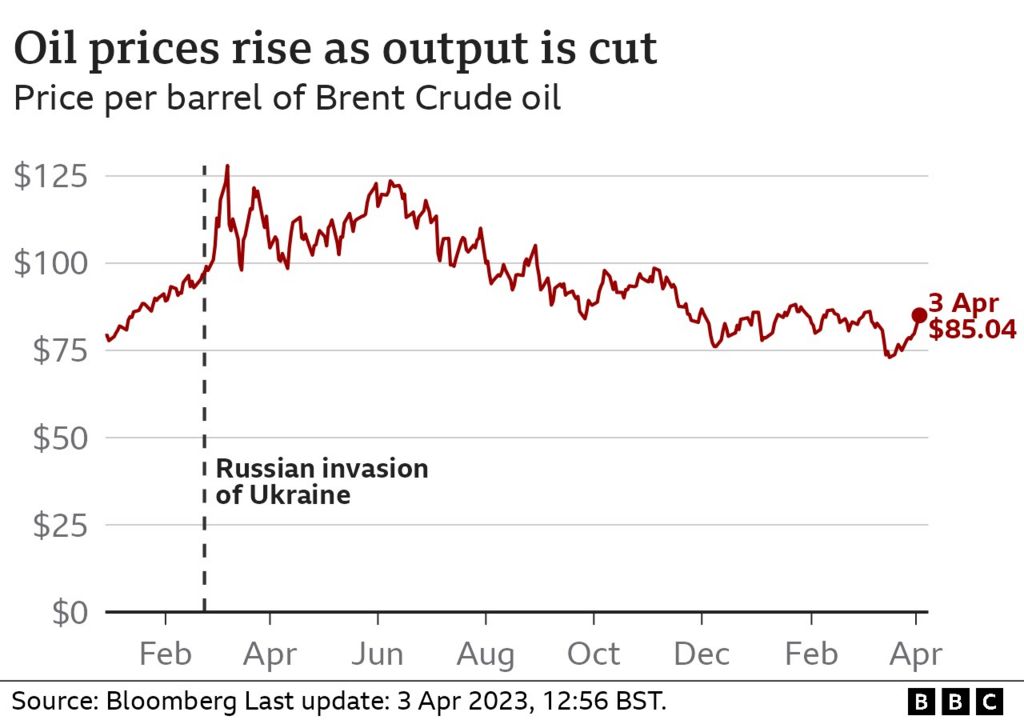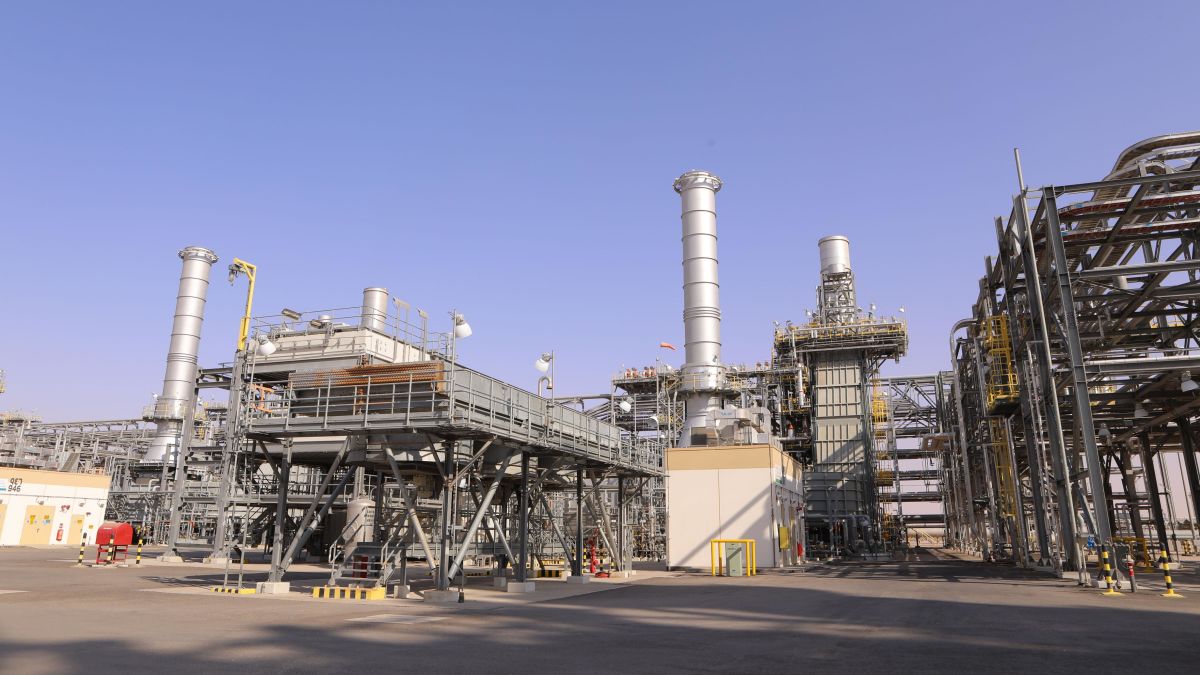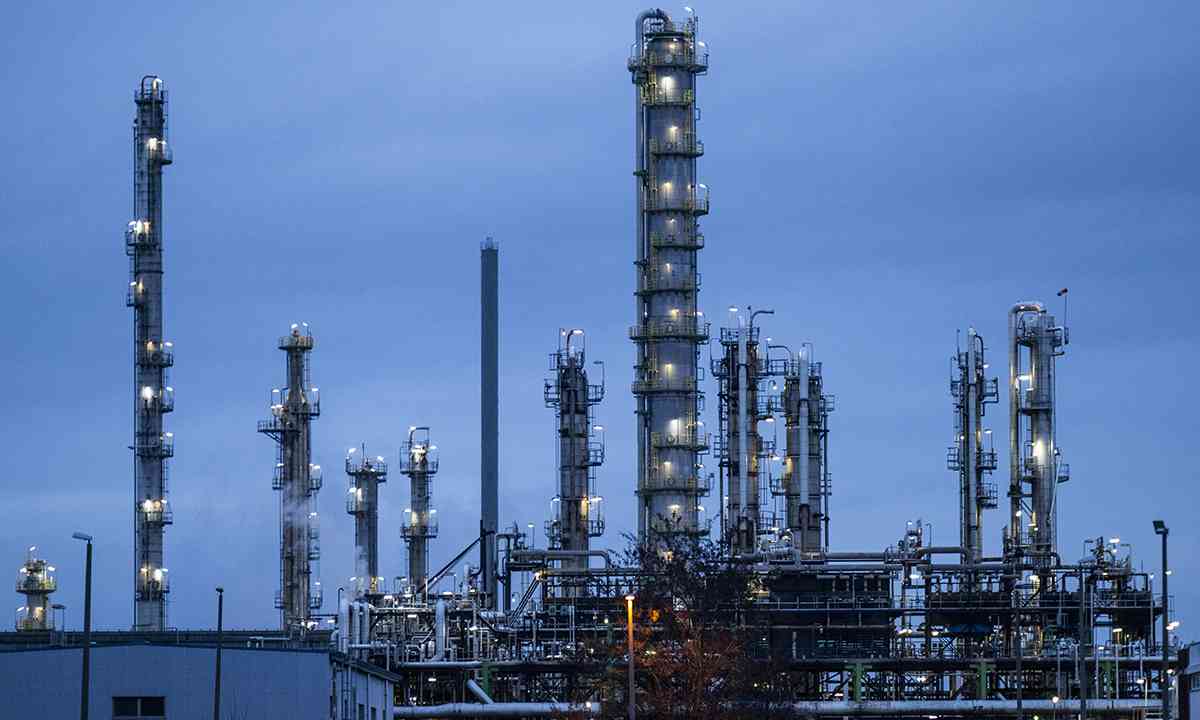After a nearly 6% increase, Brent crude oil now trades close to $85 per barrel.
Financial analysts cautioned that higher oil costs could make it harder to cut down the cost for most everyday items.
However, the RAC motoring organization stated that it does not anticipate a rise in gasoline prices unless the higher oil price persists for several days.
Brent crude prices increased on Sunday after Saudi Arabia, Iraq, and a number of Gulf states announced that they would reduce their oil production by more than one million barrels per day.
Additionally, Russia stated that it would extend its 500,000 barrels per day reduction until the year's end.
The share prices of energy giants BP and Shell increased by more than 4% on Monday.

Oil costs took off when Russia attacked Ukraine, yet are currently once again at levels seen before the contention started.
However, in order to reduce energy costs, the United States has been urging producers to increase output. The following was stated by a National Security Council spokesperson: We don't think cuts are prudent right now given market vulnerability - and we've made that understood."
Inflation, or the rate at which prices rise, has risen as a result of high fuel and energy costs, which has put financial pressure on many households.
KPMG chief economist Yael Selfin warned that the rise in oil prices could make it harder to reduce inflation.
However, she stated that rising energy costs for household members will not necessarily result from rising oil prices.
She stated, "Using earlier market expectations, the energy price cap that households benefit from has already been determined." In addition, gas and oil account for the majority of household energy consumption."
Additionally, there have been concerns that rising fuel prices could have an effect on transportation costs.
The RAC stated that it does not anticipate this taking place immediately.
A representative for the RAC fuel, Simon Williams, expressed, "Any unexpected expansion in the expense of oil shouldn't bring about an ascent in the UK normal cost of petroleum for a fortnight, except if obviously the barrel cost stays higher for a few days."
The decrease in output can be attributed to producers of oil from Opec+. The group accounts for about 40% of the world's crude oil production.
Saudi Arabia's output is decreasing by 500,000 barrels per day, while Iraq's output is decreasing by 211,000 barrels per day. Oman, Kuwait, the United Arab Emirates, and Algeria are also cutting back.

A representative of the Saudi energy ministry stated that the move was "a precautionary measure aimed at supporting the stability of the oil market," as reported by the official Saudi Press Agency.
A free oil expert named Nathan Flautist let the BBC know that the move by Opec+ seemed, by all accounts, to be an endeavor to keep the cost of oil above $80 a barrel in the medium term, considering that assents have had a "restricted influence" on limiting Russian oil supplies and that request might be impacted by a debilitating worldwide economy.
©️ Vygr Media Private Limited 2022. All Rights Reserved.























